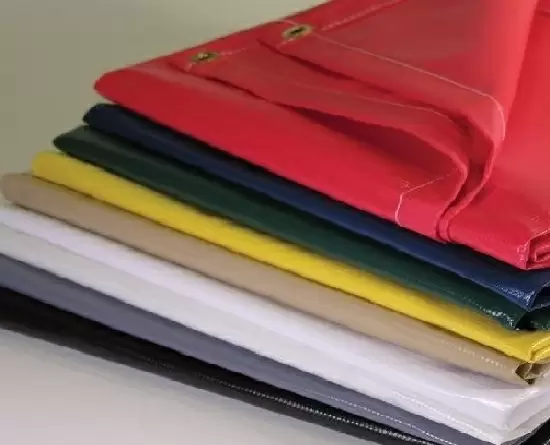
Tarps are used countless ways in providing covers, shields, and barriers in just about every sector of the economy as well as in most areas of daily life. Your employees, freight, structures, equipment, supplies, possessions and space are all valuable and require proper protection. You realize this because you are looking at ordering tarps. Here are several tips to make sure you get the right product as fast as possible.
Types of Materials:
A variety of materials are used in tarps, the most popular are made of canvas, vinyl, poly, and mesh. Each having qualities that lend themselves better to certain protection. Knowing about the different products and the best applications is the first step in finding the best covering for your requirements.
Canvas Tarps – Constructed from cotton or polyester, canvas tarps are strong, rugged, durable, and long lasting. They are breathable, water resistant, and have fire retardant options. Canvas tarps are a common and versatile covering used to cover equipment, supplies, and floors especially where breathability is important.
Vinyl Tarps – Made of plastic, vinyl tarps are the strongest, most durable coverings on the market. Vinyl tarps supply the best protection against stress, abrasion, wear and tear. They are extremely long lasting, waterproof, mildew resistant, and perform in cold temperatures. Fire retardant options are available. Popular uses include trucking, construction, and equipment covers.
Poly Tarps – Poly tarps are an economical and versatile choice. Manufactured from woven, laminated sheets of polyethylene plastics, they are an all-purpose article ideal for everyday usage. These tarps are used in the plant, on the construction site, at the campsite, and out in the backyard.
Mesh Tarps – Crafted with nylon treading, mesh tarps allow a flow of wind and water. They are best used to reduce wind, rain, and sunshine. Mesh Tarps are often employed for shade and privacy. These come in versions that are designated with the percentage of light that is blocked by the threading concentration. Common mesh tarp uses include privacy covers at home, construction, sporting facilities, and public facilities; truck beds; windbreaks; and swimming pool covers.
Size of Tarp:
Measuring for your tarp is important. Allow for proper fit in its application. Tarps come as custom made as well as in stock sizes. Custom Tarps are more expensive and take much longer to ship because of the individual attention necessary to manufacture. If you have flexibility in your coverage, an off the shelf product is more economical and timely.
Another critical aspect of ordering tarps sizes is if it a Cut Size or Finished Size as stipulated by the manufacturer. Paying attention to this aspect can mean the difference between the right size and a big mistake.
Cut Size: This refers to the size of the tarp before the seams and hems are sewn. For example, if an 8’ x 10’ is referred the starting piece of material is this size. The seams and hems are then added in the manufacturing of the tarp. Depending on how much material is used in this process, the final product will be undersized, a little bit shorter. This can be 6”, 8”, or even more shorter per width and length. Please note at the time of order what the manufacture estimates if it is a Cut Size. If it is not stated, ask.
Finished Size: The size provided in a Finished Size tarp is the actual size after sewing. This is the actual size for use.
Grommets:
Grommets are the reinforced holes, or eyelets that allow your tarp to be tied down and secured. These are mostly made of metal usually aluminum, stainless steel, or brass. The Grommets are generally equally spaced around the entire edge of the tarp in spaces of 12” to 24.” This is stated by the manufacturing. If the Grommet placement is important a custom option should be addressed and the special request made during ordering tarps so that the custom eyelets can be applied.
Shipping:
Shipping is an important step in the ordering process. A third-party carrier will be applied. To ensure proper billing, shipping, and delivery make sure that you include the correct street address. Shipments cannot be made to Post Office boxes. Incorrect addresses lead to unnecessary delays and extra charges.
Time:
When ordering tarps there are numerous stages along the way to pay attention to and consider when looking at a delivery date for your covering. Unless the tarp is on the shelf at a warehouse, odds are that the item will have to be manufactured. Depending on the product and the backlog, manufacturing time can be as short as 10 to 15 day, but usually closer to four to six weeks. Once the item is made it will have to be shipped from the plant to your designated location. Depending on the time of shipping that you ordered, this can take from one to seven days.
You have a need. You deserve the right tarp for the task. A little attention to each of the areas mentioned in this article can help make the ordering, manufacturing, and shipping process as efficient as possible. Putting your tarp to work is the finishing touch.
